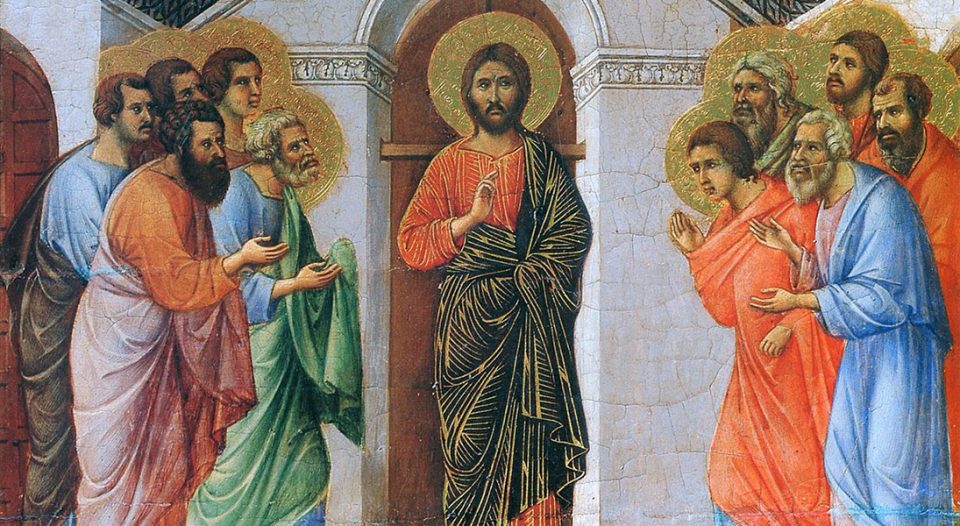Lectionary blog for April 28, 2019
Second Sunday of Easter
Acts 5:27-32; Psalm 118:14-29;
Revelation 1:4-8; John 20:19-31
When we think about the enormity of what God has done in creating, redeeming and sustaining us, it’s easy to imagine that we can’t do anything for God in return. Martin Luther insisted vehemently that there is no action we can do to save ourselves, and that God’s grace is a free gift, graciously given by God. No human work can earn us salvation. But once God has claimed us, we are called to God’s holy purposes in the world. This second Sunday of Easter, the Scriptures all carry a common theme of setting us to work for the kingdom.
The first task that we need to occupy ourselves with is to praise the God who saves us. The Psalms are filled with directives to praise God. The concluding verse of the Psalm for this week reads: “Give thanks to the Lord, for he is good, for his steadfast love endures forever” (118:29). God is indeed very good. A logical first step as we reflect during this Eastertide on Jesus’ salvific work is simply to be grateful and give thanks.
When Jesus reappeared to his disciples after his resurrection, they were overjoyed and overwhelmed to see that he truly had been raised from the dead. Jesus didn’t just appear to them and confirm his resurrection, however. Rather, he charged the disciples to carry on his mission in the world. Jesus said, “Peace be with you. As the Father has sent me, so I send you,” and then he breathed on them the Spirit (John 20:21-22). These little verses after the resurrection usually receive scant attention, but they always blow my mind: Jesus sent his disciples out on a mission, just as God had sent out Jesus! But what was that mission?
This week’s verses from Revelation help clarify what our risen Lord wants his disciples to do. Jesus “freed us from our sins by his blood, and made us to be a kingdom, priests serving his God” (1:5-6). The role of a priest then, as now, was to lead the people in service to God, especially through the presentation of sacrifices. We Christians are to live in such a holy way that our bodies are living sacrifices to God (Romans 12:1). This means, on the one hand, forgoing the shameless pursuit of destructive pleasures and, on the other hand, escaping people or systems that defile, degrade, devalue or abuse our bodies that Jesus died to redeem. We serve God by putting our bodies to holy service to God and our neighbor.
No human work can earn us salvation. But once God has claimed us, we are called to God’s holy purposes in the world.
The book of Acts contains many examples of how the early church members used their individual bodies to work for the good of Christ’s body, the church. Some waited tables (Stephen in Acts 6:2-5); some fasted and prayed (Barnabas in Acts 13:1-3); others used their bodies to travel the world and preach the good news (the disciples and Paul).
In this week’s reading from Acts, Peter and the other apostles are preaching in the temple courts, despite already having been arrested and told not to do so. When the Sanhedrin questions why they’re preaching a forbidden message, Peter says they must obey God rather than humans (5:29). He goes on to say that God exalted Jesus as prince (ἀρχηγὸν) and savior (σωτῆρα) (5:31).
We think about Jesus as savior, but Jesus is also our leader who goes before us to show the ways in which we are to follow him. Jesus’ kingdom is not of this world, but it is nonetheless a kingdom, with a king who demonstrates what we are to do. In Acts, the disciples happily emulate Jesus in being tortured for their faithfulness to God (5:40-41). This is another way, albeit exceedingly rare in the United States, to present our bodies as a sacrifice to God.
God has already redeemed us. In the future, God will resurrect our bodies. In the meantime, we are to use the resources God has given to us to get to work serving God’s kingdom.





